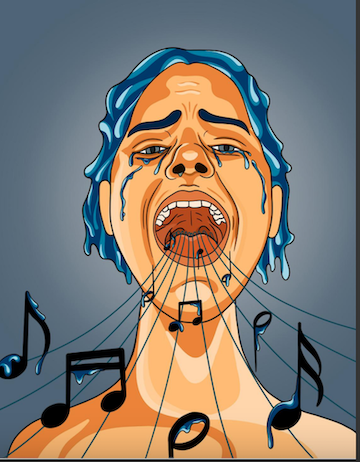Melancholic Ballads To Upbeat Pop: Are Artists Allowed To Change?
As I was listening to “The Path” by Lorde on repeat, something stuck out to me. The lyrics “If you are looking for a saviour, well that's not me” made me think of the heavy expectations that are placed on artists to make music a certain way. We look at artists as a sort of safe haven who are supposed to reflect our emotions back to us. The pain. The agony. Those tough emotions that we need someone else to feel with us. What happens when sad artists become happy? Do we turn our backs on them?
Following the release of Solar Power, many listeners of Lorde had mixed initial reactions. Fans grew accustomed to the melancholic angst and emotionally brutal lyrics that carried her work in Melodrama and Pure Heroine, and resonated with feelings of being a bit too much for everyone and feeling apprehensive about the future. Comparing this to Solar Power, where she is dancing in the sun with a “new state of mind,” it can feel as though she is miles away from us on a beach, which is a shift that many were not expecting, myself included. This led me to think about what happens when our favorite sad artists shift their music and why so many are afraid of this shift.
When these artists stop creating painful songs, it can feel as though we are left to deal with those emotions on our own. These artists truly do not owe us their pain; nonetheless, many still crave it.
Emerson College Music Historian in Residence Fredericka King notes how, “Many people have come to expect that artists are obligated to give them what they have always had from them. It's happened regularly. The listener may not be ready to 'get happy,' and it's like a change in any 'relationship'—it requires that an adjustment be made.”
Art by Reb Czukoski
Sad music makes us feel validated in our own sadness. To have someone who shares our emotions no longer feel those emotions can feel like a loss. A lot of this stems from listeners projecting our own emotions onto people we do not personally know. That is not the artist's fault, and we tend to forget that.
“Many of us form attachments to these artists during formative years of our life. Our feelings with music feel inherently nostalgic and personal because we have taken these songs from these artists and they have become part of a landscape in how we understand ourselves,” WLP student and music listener Kait Joyner ‘22 says.
This idea of relying on these artists for their more vulnerable music gets further cemented with the release of Mitski’s new song “Working for the Knife,” which grapples with the idea of becoming an adult while faced with a world that has no humanity. Many listeners on Twitter made jokes of Mitski beating the happiness allegations, unlike Lorde. Therefore, many were thrilled that Mitski continued to release heavier music.
It was a bit funny at first, but it also made me a lot more aware how listeners tend to romanticize the way in which artists that are down seem to create “better” art—let’s rephrase—more relatable art. There is almost a beauty that is shown when an artist is sad, which cannot be demonstrated in their art if they are no longer in that state of mind. It is not that happy songs aren’t good or listened to as often, but it seems as though they do not reflect back our vulnerability. This idea ties back to the glamorization of the tortured artist cliche that makes these artists more appealing because they are sad, which can be a huge issue.
“Upbeat sounding music can still hold complex emotions just like sad music can,” Joyner continues.
It is not productive to dwell on the mindset of never letting artists change and get to a place where they are doing better. In fact, we should admire the fact that people have gotten to a place where they can write about basking in the sun and dancing their cares away. It is over-simplistic to say that artists cannot ever change their art. However, it is not a bad thing that we see ourselves reflected through their art. We just have to be aware that musicians are not our property and will not always reflect back the same emotions we feel.
Musicians aren’t supposed to stay stagnant, and emotions are varied in the human experience, even when we feel stuck in our own sadness.

